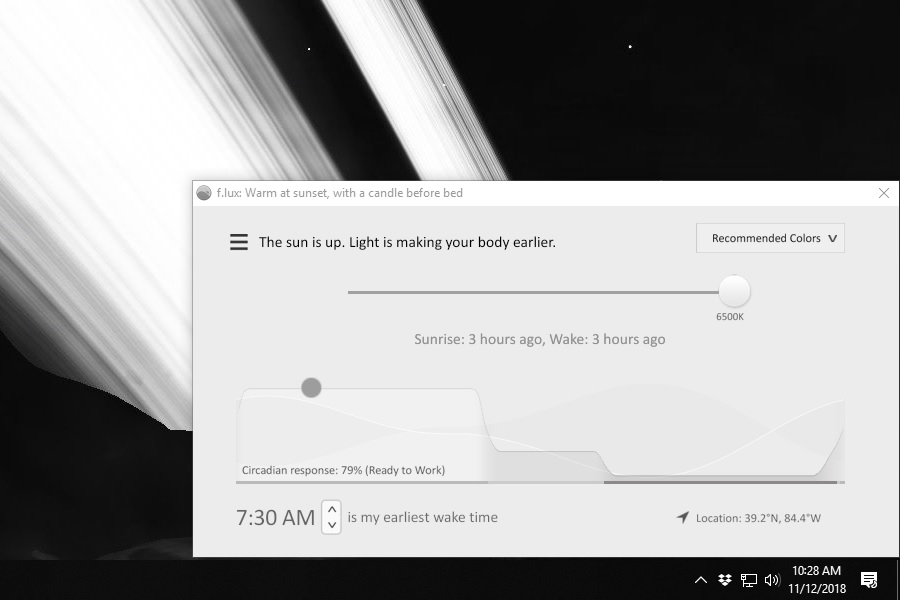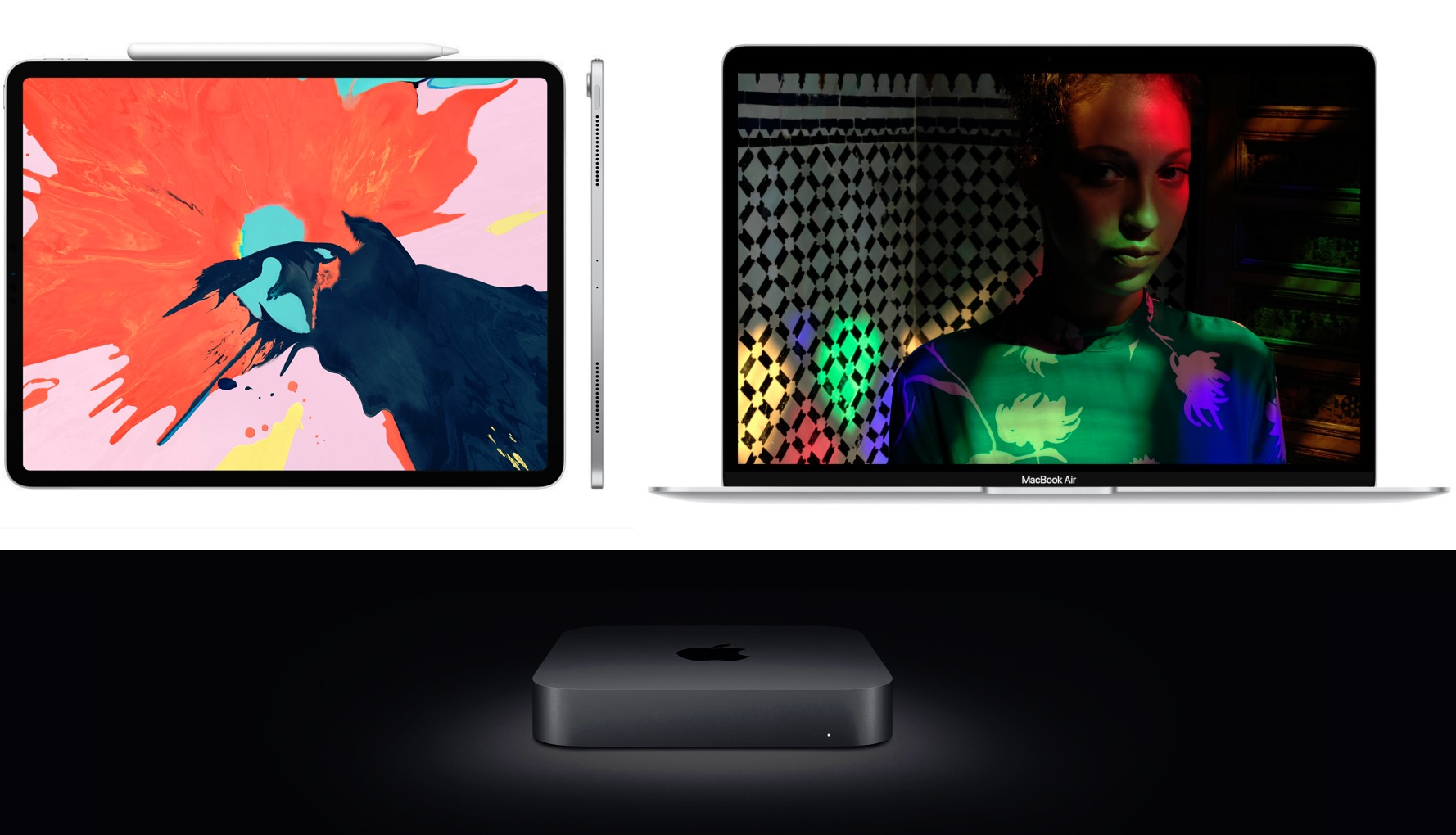 |
| |
 |
| Issue #14: Smarter tech shopping on Black Friday |
| Plus: New iPads, new Macs, and the joy of computing in grayscale |
| |
 |
|
Every year, the folks at PCWorld ask me to write a couple articles rounding up the best Black Friday and Cyber Monday tech deals. And every time I sift through retailers' promotional materials, I'm appalled at what I find.
Good deals on tech products certainly do exist during the holiday season, but they're often buried under dubious discounts and sleazy sales tactics. Many of the websites rounding up Black Friday deals aren't much help either, as they focus more on the size of each discount than the worthiness of the actual products.
Before you go gadget-shopping in a couple weeks, here are some common pitfalls to avoid:
Disappearing doorbusters: The most infamous Black Friday sales tactic is the "doorbuster," in which a product--usually a TV or laptop--goes on sale for an unbelievably low price. Many of these deals only appear in brick-and-mortar stores, and they sell in such low quantities that you can't get them without camping out in the cold (or giving up Thanksgiving dinner, as retailers push Black Friday start times ever-earlier). These days, plenty of great deals are available online; don't waste your time with ones whose only purpose is to get you into a store.
Fake discounts: Another common retail trick on Black Friday is to advertise discounts off the full retail price, even when that product regularly sells for much less. Instead of using the size of a discount as your guide, cross-reference your potential purchases on CamelCamelCamel, a free website that tracks the price history of products on Amazon. You might be surprised at how many Black Friday deals are really nothing special.
Missing model numbers: In their Black Friday promo materials, retailers have a nasty habit withholding product details, especially for televisions and laptops. Instead of listing a specific model, they might advertise a "43-inch LG TV" or a "55-inch Samsung 4K TV." Without a model number, you can't do any research into the product's quality, features, or price history. (My rule of thumb for TVs in particular: If a model hasn't been reviewed on sites like CNet or RTings, it's not worth your consideration.)
Old tech: Retailers sometimes use the holidays to offload products that are a year or two old. A prime example is Apple's 2017 MacBook Air, which Best Buy will sell for $800 on Black Friday this year. Best Buy was offering the exact same price on the exact same laptop last year, so this deal isn't as great as it might seem. (Besides, Apple has now replaced 2017's MacBook Air with a far superior version, which I'll talk about shortly.) Similar tactics abound for Android tablets (see: this measly $50 discount on a 2017 Samsung tablet with a two-year-old version of Android) and sometimes for laptops as well.
Bad deals at any price: Look through enough Black Friday deal articles, and your eyes may glaze over from the sheer quantity of TVs, laptops, phones, and accessories on offer. At some point, it becomes hard to figure out what's actually worth buying--perhaps by design. That's why I've always appreciated The Wirecutter's saner approach to covering Black Friday deals. Instead of listing dozens of deals in every product category, the site only mentions the tiny percentage of products that its reviewers believe are the best.
Your own impulses: Of all the sales tactics we see on Black Friday, perhaps the most dangerous is our own fear of missing out on great deals. The reality is that there are plenty of other opportunities to save money throughout the year. TVs often go on sale again around the Super Bowl, for instance, while Amazon's Prime Day presents a chance to buy cheap gadgets over the summer. Though it's satisfying to feel like you've gotten a bargain, staying away from stuff you don't really need feels even better in the long run.
Got questions on any deals you've come across? Send me an email and I'll do my best to vet them.
|
 |
| Tip of the moment |
 |
|
Earlier this year, several tech writers started talking about grayscale as a way to save themselves from phone addiction. While I never got into the idea of running my phone in black-and-white, I've been thoroughly enjoying grayscale mode on my computer thanks to a free program called F.lux.
F.lux is best-known for filtering your PC's display colors to reduce blue light and minimize eyestrain. The latest version for Windows adds a grayscale mode that eliminates colors entirely. It gives the screen a more paper-like feel, and is a nice way to minimize stimuli when you're trying to focus on a task (like, say, writing a newsletter). To activate it, just install F.lux, then hit the top-left menu button and select "grayscale" from the "Effects and extra colors" menu. (You can also press Windows Key + End to toggle it on and off.)
The grayscale feature hasn't arrived on F.lux for Mac yet, though a similar effect is available through MacOS's Accessibility menu.
|
 |
| Need to know |
 |
|
New iPads Pro: Apple has redesigned its iPad Pro line with new 11-inch ($799) and 12.9 inch ($999) models. Both eliminate the home button and use FaceID for logging in, which in turn allows for narrower bezels around the display. The new iPads also ditch Apple's proprietary Lightning jack for USB-C, which should allow them to work with a wider range of accessories. Meanwhile, a new Apple Pencil ($129) can snap magnetically to the side of the iPad (no more weird pencil clip hacks required) and lets you double-tap on it for alternate drawing functions (such as quickly switching to an eraser). Apple is also selling a new keyboard case ($179) that covers both sides of the iPad when it's not in use.
Although Apple continues to pitch the iPad Pro as a laptop replacement, reviewers continue to question that proposition due to the limitations of iOS, which still makes a chore of some basic PC tasks such as transferring images. I agree that trying to use an iPad as a primary work computer can be maddening, but it is a terrific supporting player. I work on a desktop PC most of the time, but my 10.5-inch iPad Pro has become indispensable for drafting stories, conducting light research, and taking notes during interviews. There isn't a Windows PC out there that offers a comparable thin-and-light design with the same 10-hour battery life.
New Macs: The other half of Apple's latest press event was dedicated to the Mac, and specifically to a new MacBook Air laptop and Mac Mini desktop. The new Air adds a high-resolution Retina display and shrinks the bezels around the screen, and it also includes a TouchID fingerprint sensor, "Hey Siri" voice command support, better stereo speakers, and a new keyboard design. It's also much faster than the old MacBook Air from 2017. Still, it doesn't exactly replace the older model, which is sticking around at $999. The new model will start at $1,199.
A few years ago, it seemed as though Apple was plotting to replace the Air with its 12-inch MacBook--itself a thinner and lighter alternative to the MacBook Pro. Still, the Air has remained a far more popular option, most likely because of its lower price and larger screen. For now, the MacBook remains available for $1,199, though the new Air is a far superior option. In a year or two, I wouldn't be surprised if the MacBook lineup starts with this year's Air at a lower price (say, $999), with both the cheaper Air and 12-inch MacBook getting phased out entirely.
As for the Mac Mini, this upgrade is the first since 2014, finally giving desktop users an alternative to the iMac with Intel's latest processors. It could be a cheaper option if you already have a desktop monitor, or want to use a screen that's larger or smaller than what the iMac provides. However, the Mini is no longer the low-cost Mac it once was. Whereas the old model cost $499, the new version with an Intel Core i3 processor starts at $799.
|
|
|
| |
 |
| Spend wisely |
 |
|
The best deal in tech right now isn't even related to Black Friday: If you sign up for a Spotify Family plan at $15 per month, you can get a Google Home Mini smart speaker for free. The deal applies to both new and current subscribers, and nothing's stopping you from cancelling the membership after your speaker ships. The Google Home Mini's retail price is $50, though it'll be half-off at most retailers during Black Friday.
Some other Black Friday deals that caught my eye:
- The Google Home Hub is a great digital picture frame that normally costs $150. It'll be $99 at major retailers such as Best Buy, Walmart, and Target on Black Friday.
- Apple's HomePod speaker will sell for $250 (a $100 discount) at Best Buy, starting at 5 p.m. on Thanksgiving.
- Most retailers will sell Apple's 2018 iPad (the non-Pro version) for $250, which is an $80 discount.
- Amazon's Fire TV Stick 4K (which I quite liked) will sell for $35 instead of $50 on Black Friday.
- The Roku Ultra will be half-off, at $50, from most retailers on Black Friday.
- Microsoft's Black Friday deals include up to $300 off the excellent Surface Laptop 2, and up to $330 off the Surface Pro 6 tablet with Type Cover.
|
 |
| Thanks for your support! |
|
If you'd like to give the gift of tech smarts this holiday season, I'm now offering Advisorator gift subscriptions. Unlike regular Advisorator memberships, these won't auto-renew, and they're only available to you, my beloved current subscribers, during the holiday season. Fill out this form to purchase a subscription for either six months ($30) or one year ($50). You can choose the activation date and include a message for the recipient, and I'll bill the card you already have on file.
In other Advisorator news, I was happy to see a bunch of you sign up for deal alert emails. Please let me know what you think about the quantity or quality of the emails I've sent so far. If you're not getting these emails, but would like to, just click here. Each deal email has an unsubscribe link so you can easily opt back out at any time.
I'll probably be doing some work on Black Friday, so let's have a live chat session that day, November 23, at 12 p.m. Eastern time. I'll judge your potential purchases in real-time. Visit this link to join, or click here to get a reminder beforehand.
Thanks again for subscribing, and for those of you in the U.S., have a terrific Thanksgiving.
-Jared
|
|
|
|
 |
 |
|
|
 |
|




